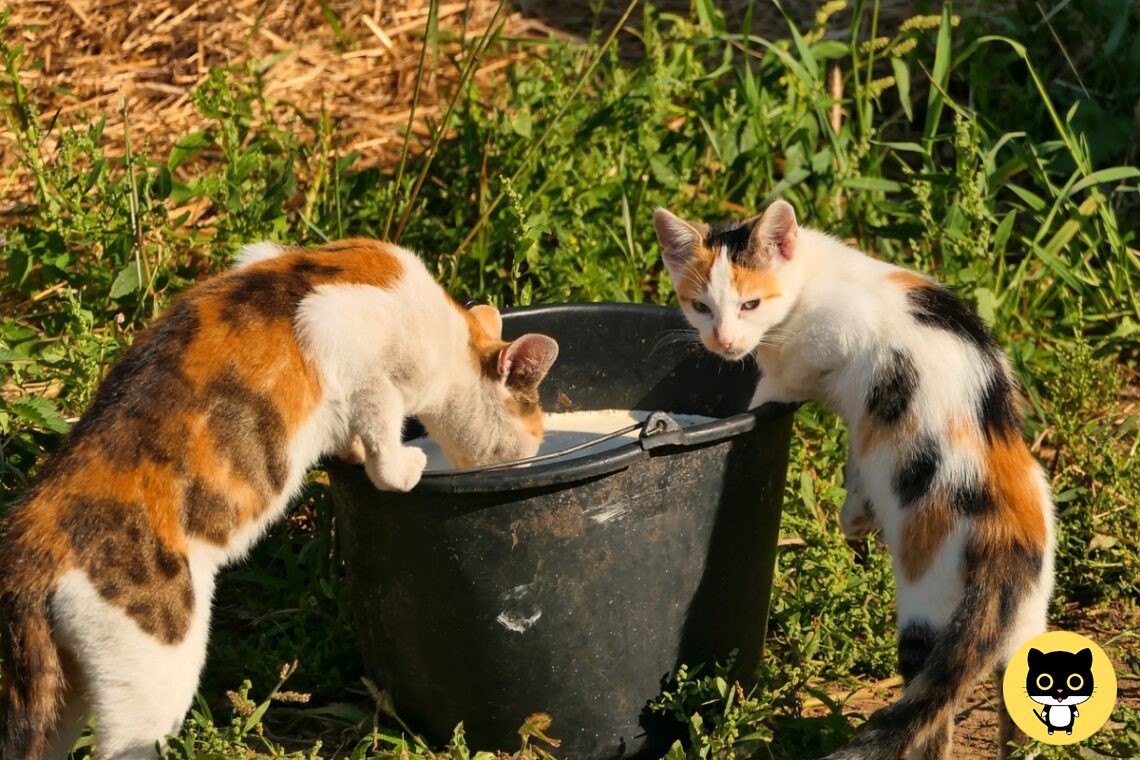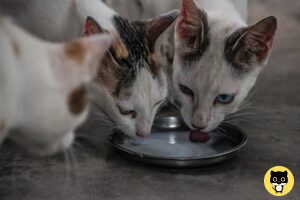Can Cats drink milk?
Many pet owners are curious if cats can drink milk. After all, the idea of a contented kitty lapping up a bowl of creamy milk is a classic image. But is it safe for cats to drink milk? In this article, we’ll discuss the benefits and risks of cats drinking milk, and offer advice from experts on how to best provide your kitty with this beloved treat.
Can cats drink milk? The answer is a bit complicated. Cats can digest milk, however, the lion’s share (no pun intended) of adult cats lack the enzymes necessary to break down the lactose found in mammal milk (i.e. malabsorption). In addition, many cats are lactose intolerant, which means they cannot handle lactose (present due to malabsorption). This is why cats can suffer from digestive issues such as vomiting, diarrhea, and flatulence after drinking milk. It’s important to note that cats are not the only mammals that cannot digest lactose. Most humans, dogs, and other mammals do not produce the enzymes (lactase) needed to break down lactose.
To put it differently, everyone with lactose intolerance has lactose malabsorption, but not everyone with lactose malabsorption has lactose intolerance.
Benefits of cats drinking milk
Despite the risks, there are some potential benefits to cats drinking milk. First, it can provide them with a source of hydration, especially if they don’t drink enough water. It can also provide them with essential nutrients such as protein and calcium. In addition, the fat in milk can help keep cats healthy and help them maintain a healthy weight.
Cats also enjoy the taste of milk, which can make it a great treat. This can be especially beneficial for cats that are picky eaters or are recovering from an illness. If your cat is a fan of milk, it can be a nice way to bond with them and show them a little extra love.
Play Video – Can Cats drink Milk

Risks of cats drinking milk
As mentioned earlier, cats cannot break down the lactose in milk, which can lead to digestive issues such as vomiting, diarrhea, and flatulence. In addition, cats who drink too much milk can become overweight or suffer from nutritional deficiencies. This is because milk lacks certain essential nutrients such as taurine, which is essential for cats’ health. See also Why Your Cat is Pooping on the Floor.
In addition, milk can contain bacteria that can make cats sick. This is why it’s important to make sure the milk you give your cat is pasteurized and free from bacteria. It’s also important to keep the bowl of milk clean and replace it with fresh milk every day.
Types of milk cats can drink
If you decide to give your cat milk, you should limit the amount given, and observe how your cat reacts. Adult cats are not designed to rely on milk as a main source of sustenance. Give them milk as an occasional treat only. Choose the right type of milk. The most common types of milk cats can drink are cow’s milk, goat’s milk, and sheep’s milk. All of these milks are high in fat and calories, so it’s important to limit how much your cat drinks. In addition, all of these milks contain lactose (in various degrees), so again, it’s important to keep an eye on your cat for any signs of digestive issues.
Milk alternatives for cats
If you’re looking for a milk alternative for your cat, there are a few options. For example, there are low-fat, lactose-free milks such as soy, almond, or rice milk. All of these have their benefits and drawbacks. You can also give your cat a special cat milk formula that is designed to provide cats with all the essential nutrients they need.
Signs your cat is drinking too much milk
If your cat is drinking too much milk, there are a few signs to look out for. If your cat is drinking more than a few tablespoons of milk per day, they may be consuming (apart from lactose) too much fat and calories. This can lead to weight gain and other health issues. You should also look out for any signs of digestive issues such as vomiting, diarrhea, or flatulence.
Advice from experts
When it comes to giving your cat milk, one option is to consult your veterinarian before offering it. Your vet can provide you with advice on the right type of milk and how much is safe for your cat. They can also suggest appropriate milk alternatives if needed. It’s also important to monitor your cat for any signs of digestive issues.
In Sum:
Cats can drink milk, but it’s important to be aware of the risks, as adult cats are not designed to rely on milk for sustenance. Milk can provide cats with essential nutrients and hydration, but it can also lead to digestive issues and nutritional deficiencies. If you decide to give your cat milk, limit the amount they drink, and choose the right type of milk. With the right precautions, cats can enjoy the occasional treat of milk.
What is your experience with cats and milk? Please register and leave a reply below or post in the Forums to spread knowledge.






